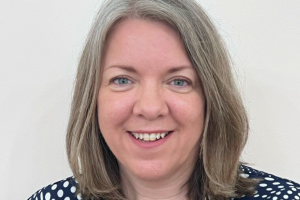There’s a quiet revolution happening in social care — and it starts in the garden.
A unique partnership between Community Integrated Care and leading conservation charities WWF, RSPB, and the National Trust is helping people who draw on care to connect with nature, boost wellbeing, and become champions for the environment — all at the same time.
“This dual impact, transforming lives while protecting our environment, makes this one of the most exciting and vital programmes that we have ever developed,” says John Hughes, Director of Partnerships and Communities at Community Integrated Care.
The project began as part of the Save Our Wild Isles campaign, an ambitious movement led by the UK’s three biggest conservation charities to protect and restore our fragile ecosystems. But Community Integrated Care saw an opportunity to go further — to make nature a tool not just for recovery, but for empowerment.
Let’s face it: access to nature is something many of us take for granted. But for people who rely on social care, the barriers are often huge — physical, financial, and practical. This project set out to break those barriers down.
The result? A suite of co-produced, accessible, and affordable tools that are already making a big impact across the country. One of the standout resources is a guide to creating a sensory garden for under £100. Designed alongside people supported by the charity and RSPB gardening experts, the guide uses perennial plants that are easy to maintain but rich in texture, colour, and scent. These gardens aren’t just beautiful — they’re therapeutic, giving people space to relax, connect, and feel at home.
There’s also a series of sensory walk guides, specially designed for people with complex learning disabilities. These walks offer gentle, meaningful ways to experience nature safely and joyfully — helping tackle the deep health inequalities that this group often faces.
For people living with dementia, nature has been used as a powerful tool for reminiscence. Activities draw on familiar sights, sounds, and scents to spark memories, start conversations, and boost emotional wellbeing.
The impact isn’t just anecdotal. The project has reached thousands of people so far, with hundreds of care services and community groups using the resources. It’s also earned national recognition, winning the Care Innovator Award at the Great British Care Awards in both Scotland and the North East.
And this is just the beginning. In 2024, WWF launched A Prescription for Nature, a national campaign to prescribe a “daily dose of nature” to the UK public — highlighting its positive impact on everything from depression to diabetes. This campaign took centre stage at the Climate Coalition’s Mass Lobby in July, with thousands calling on MPs to protect nature and promote green spaces as a public health necessity.
Matt Price, a member of Community Integrated Care’s Support Squad — a team of people with lived experience of care — summed it up beautifully: “As a person who is autistic, I find that being connected to nature is vital for my wellbeing – nothing beats a walk with my dog when I’m feeling a bit down. I’ve seen the difference these programmes make.”
The collaboration has created a ripple effect, empowering people who are too often left out of the climate conversation to become contributors — not just recipients — of change. As Hughes puts it: “We’ve built a legacy that lives in gardens, walks, and daily moments of joy — while supporting the bigger fight to save our planet.”
This is social care with a difference — one that brings people and nature together, and shows just how powerful that combination can be.
Find out more and access the free resources at www.CommunityIntegratedCare.co.uk/Nature
communityintegratedcare.co.uk







